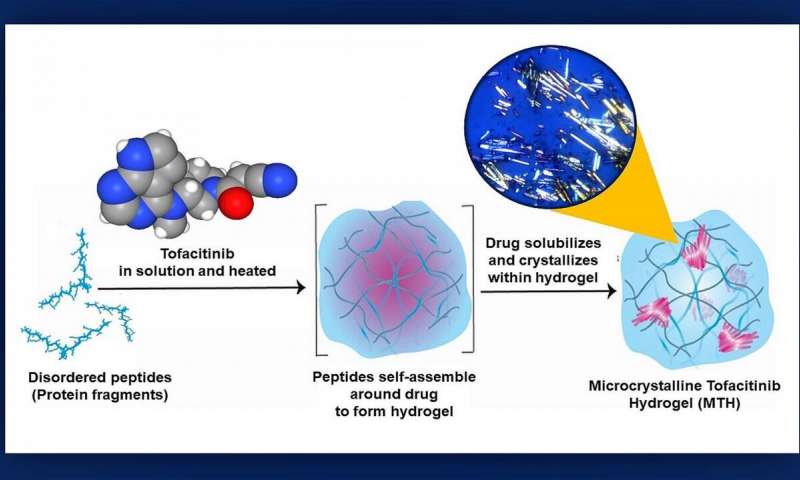For patients who receive a heart transplant in the
near future, the old adage, “Good things come in small packages,”
may become words to live by. In a recent study, researchers at
Johns Hopkins Medicine and the National Cancer Institute (NCI)
demonstrated in mice that they can easily deliver a promising
anti-rejection drug directly to the area surrounding a grafted
heart by packaging it within a tiny three-dimensional, protein gel
cocoon known as a hydrogel. Best of all, the researchers say that
the release of the drug is spread out over time, making it highly
regulatable and eliminating the need for daily medication to keep
rejection in check.
Tiny biological package gets drug right to the ‘heart’ of
transplant rejection



